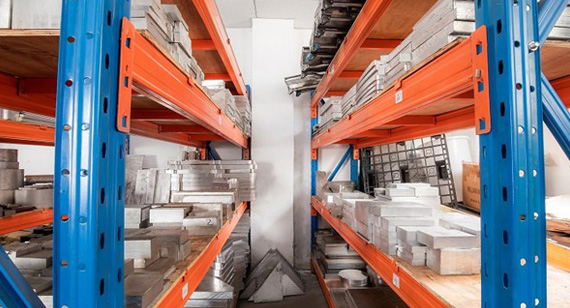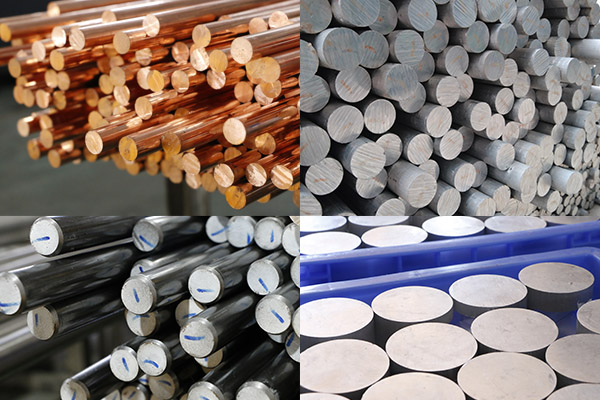15 years one-stop China custom CNC machining parts factory

Hey there I’m VMT Sam!
With 25 years of CNC machining experience we are committed to helping clients overcome 10000 complex part-processing challenges all to contribute to a better life through intelligent manufacturing. Contact us now
 92 |
Published by VMT at Mar 23 2024
92 |
Published by VMT at Mar 23 2024
Material Selection for CNC Machined Parts in Long-Term Special Environment Applications
In the realm of CNC machined parts manufacturing, the selection of materials is crucial for components intended for long-term use in special environments. These environments may include high temperatures, low temperatures, high humidity, corrosive gases, vacuum conditions, strong radiation, and other extreme conditions. Such components require outstanding stability, corrosion resistance, fatigue resistance, and high reliability. This article delves into the materials that should be chosen for CNC machined parts intended for long-term use in special environments, along with considerations and precautions in material selection.

I. Requirements of Special Environments on CNC Machined Part Materials
In special environments, CNC machined parts need to withstand varying degrees of physical, chemical, and mechanical influences, leading to different requirements for materials. Here are some common special environments and their specific demands on part materials:
High-Temperature Environment: Parts should exhibit high-temperature stability, resist deformation, melting, or oxidation, while maintaining good mechanical performance.
Low-Temperature Environment: Parts should possess low-temperature toughness, resisting embrittlement, cracking, and ensuring dimensional stability.
Corrosive Environment: Parts should have excellent corrosion resistance, able to withstand the corrosive effects of acids, alkalis, salts, and other chemicals.
High-Humidity Environment: Parts should display good moisture resistance, resisting rust, mold, while maintaining stable electrical performance.
Vacuum Environment: Parts should have low volatility, minimizing gas emissions, while maintaining good sealing performance.

II. Materials Suitable for CNC Machined Parts in Special Environments
Considering the requirements of the above-mentioned special environments, here are some commonly used materials for CNC machined parts and their characteristics:
Stainless Steel: Exhibits excellent corrosion resistance and high-temperature stability, suitable for corrosive and high-temperature environments. However, stainless steel poses challenges in machining and comes with higher costs.
Titanium Alloy: Features exceptional corrosion resistance and low-temperature toughness, suitable for corrosive and low-temperature environments. However, titanium alloy is expensive and poses machining challenges.
Nickel-Based Alloys: Offers outstanding high-temperature stability and corrosion resistance, especially suitable for high-temperature and corrosive environments. However, the cost is relatively high.
Ceramic Materials: High hardness, wear resistance, and excellent corrosion resistance make ceramics suitable for high-hardness, high-wear, and corrosive environments. However, ceramics are brittle and challenging to machine.
Engineering Plastics: Possesses good moisture resistance and electrical properties, suitable for high-humidity environments and electrical applications. There is a wide range of engineering plastics available, allowing for material selection based on specific needs.
High-Temperature Alloys: Examples include tungsten-based and molybdenum-based alloys, offering high melting points and excellent high-temperature performance, suitable for manufacturing parts in high-temperature environments.
Composite Materials: Such as Carbon Fiber Reinforced Plastics (CFRP), combining the advantages of different materials, providing lightweight, high strength, and corrosion resistance, suitable for manufacturing parts in complex environments.
Special Plastics: Certain special plastics like Polyimide (PI) and Polytetrafluoroethylene (PTFE) exhibit excellent high-temperature and corrosion resistance, suitable for special environments in the manufacturing of electrical and electronic components.
III. Factors to Consider and Precautions in Material Selection
When selecting materials for CNC machined parts intended for long-term use in special environments, consider the following factors and precautions:
Environmental Factors: Understand the temperature, humidity, corrosiveness, and other environmental factors where the parts will be used to determine specific material requirements.
Part Functionality: Choose materials based on the functionality and stress conditions of the parts, ensuring they possess the required mechanical properties.
Machining Performance: Consider the ease of machining, cost, and production efficiency of the materials, selecting those that are easy to machine and cost-effective.
Durability and Reliability: Ensure the selected materials can operate stably in special environments for an extended period, providing good durability and reliability.
Regulations and Standards: Comply with relevant regulations and standards to ensure that the selected materials meet industry specifications and safety requirements.
IV. Case Analysis and Practical Experience
In practical applications, the selection of materials for CNC machined parts in different special environments can be analyzed and summarized using specific cases. For instance, in the aerospace industry, titanium alloys are widely used for engine components and aircraft structures due to their excellent corrosion resistance and low-temperature toughness. In the chemical industry, stainless steel and nickel-based alloys are favored for their outstanding corrosion resistance.
Furthermore, through long-term practical experience and data accumulation, certain materials may demonstrate better performance in specific special environments. Therefore, when choosing materials, it is valuable to draw from practical experience and consider specific circumstances.
V. Conclusion and Outlook
In conclusion, the selection of materials for CNC machined parts intended for long-term use in special environments is a complex and critical task. It requires a comprehensive consideration of environmental factors, part functionality, machining performance, durability, reliability, and compliance with regulations and standards. With the continuous advancement of science and technology and the emergence of new materials, more options for materials suitable for special environments in CNC machined parts are expected. Concurrently, ongoing accumulation of practical experience will enhance the accuracy and rationality of material selection, contributing intelligence and strength to the development of CNC machined parts manufacturing.

As experts in the field of CNC machined parts manufacturing, it is essential to stay updated on the developments in new materials, technologies, and techniques. Strengthening collaboration and communication with other fields will collectively drive progress and innovation in CNC machined parts manufacturing technology.
Ready To Start Your Next Project?
Get Instant Quote

Request a Free Quote
Send us a message if you have any questions or request a quote. We will get back to you ASAP!